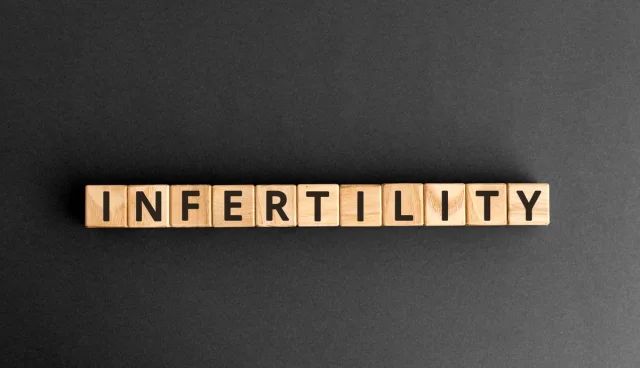
Beyond Barriers: Navigating the Landscape of Infertility Causes and Solutions
Infertility is a deeply personal and often emotionally challenging issue that affects millions of couples worldwide. It’s a condition that can shatter dreams of parenthood and cause immense stress and heartache. In this comprehensive blog, we will explore what infertility is, its causes, and the available treatment options. We’ll also delve into fertility testing, focusing on female infertility. Let’s begin by defining infertility and gaining a better understanding of this complex issue.
What is Infertility?
Infertility is a medical condition characterized by the inability to conceive a child despite regular, unprotected sexual intercourse for an extended period, typically one year for women under 35 and six months for women over 35. Both men and women can experience infertility, but for this blog, we’ll primarily focus on female infertility.
Female Infertility
Infertility in women can result from various factors, including problems with ovulation, blockages in the fallopian tubes, or issues with the uterus or cervix. Let’s look at some typical reasons for female infertility.
Causes of Female Infertility
- Ovulatory Disorders: Irregular or absent ovulation is a leading cause of female infertility. The normal release of eggs might be hampered by ailments such hypothalamus dysfunction and polycystic ovarian syndrome (PCOS).
- Factors related to the tubum: Fertilisation can be hampered by blocked or damaged fallopian tubes, which prevent the egg from contacting the sperm. Infections, pelvic inflammatory disease, or previous surgeries can cause tubal issues.
- Uterine Abnormalities: Abnormalities in the structure of the uterus, such as fibroids, polyps, or adhesions, can interfere with embryo implantation.
- Cervical Factors: Problems with cervical mucus, such as thickening or hostility to sperm, can make it difficult for sperm to reach and fertilize the egg.
- Endometriosis: This disorder develops when uterine-lining-like tissue spreads outside the uterus. By inflaming the fallopian tubes or obstructing them, endometriosis can have an impact on fertility.
- Age: As a woman ages, her fertility decreases as her quality and number of eggs drop, especially beyond the age of 35.
- Lifestyle Factors: Smoking, excessive alcohol consumption, obesity, and stress can all contribute to female infertility.
Fertility Testing for Women
If a woman suspects she may be experiencing infertility, a series of tests can help diagnose the underlying causes. These tests aim to evaluate various aspects of reproductive health, such as ovulation, egg quality, fallopian tube function, and the condition of the uterus and cervix.
Common Fertility Tests for Women:
- Ovulation Tracking: This involves monitoring basal body temperature, cervical mucus, and using ovulation predictor kits to determine if and when ovulation occurs.
- Hormone Testing: Blood tests can measure hormone levels, such as follicle-stimulating hormone (FSH), luteinizing hormone (LH), and estradiol, to assess ovarian function.
- Hysterosalpingography (HSG): A special X-ray test that checks for blockages or abnormalities in the fallopian tubes and the uterine cavity.
- Pelvic Ultrasound: This imaging technique can detect structural issues in the reproductive organs, like fibroids or cysts.
- Laparoscopy: A surgical procedure where a thin tube with a camera is inserted through a small incision to examine the pelvic organs closely.
- Ovarian Reserve Testing: Measures the quantity and quality of a woman’s eggs, often done through blood tests and ultrasound.
Once the underlying cause of infertility is identified through these tests, appropriate treatment can be recommended.
Infertility Treatment Options
- Lifestyle Modifications: In some cases, simple lifestyle changes such as weight loss, smoking cessation, and stress reduction can improve fertility.
- Medications: Fertility drugs, like clomiphene citrate and gonadotropins, can stimulate ovulation in women with ovulatory disorders.
- Intrauterine Insemination (IUI): Also known as artificial insemination, this procedure involves placing sperm directly into the uterus during ovulation to increase the chances of fertilization.
- In Vitro Fertilization (IVF): IVF is a highly effective assisted reproductive technology. It involves retrieving eggs, fertilizing them with sperm in a laboratory, and then transferring the resulting embryos into the uterus.

IVF Procedure
The IVF procedure can be broken down into several key steps:
- Taking fertility drugs helps the woman’s ovaries generate more eggs by stimulating them.
- Egg Recovery: A minimally invasive process is used to remove the eggs from the ovaries.
- Fertilisation: In a lab, sperm is used to fertilise the recovered eggs.
- Fertilised eggs (also known as embryos) are cultivated and watched over for a number of days.
- Embryo Transfer: One or more healthy embryos are selected and transferred into the woman’s uterus.
- About two weeks following the embryo transfer, a pregnancy test is done to see if the operation was successful.
- Surgery: In cases where structural issues, such as uterine fibroids or tubal blockages, are the cause of infertility, surgical procedures may be necessary to correct these problems.
- Donor Eggs or Sperm: In situations where a woman’s eggs or a man’s sperm are of poor quality or unavailable, using donor eggs or sperm may be an option.
- Surrogacy: When a woman is unable to carry a pregnancy to term due to medical conditions, surrogacy allows another woman to carry and deliver the baby on her behalf.
Conclusion
Infertility is a complex and emotionally challenging issue, but it’s important to remember that you are not alone. Many couples facing infertility go on to achieve their dream of parenthood with the help of advancements in fertility treatment and support from healthcare professionals.
Understanding the causes of infertility, undergoing fertility testing, and exploring treatment options like IVF can offer hope to those struggling to conceive. If you or a loved one are experiencing infertility, seek guidance from a healthcare provider who specializes in reproductive medicine. With the right care and support, the path to parenthood can become a reality.
